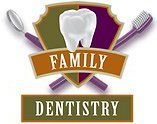Dental Implants, Care & Repairs in Andover & South Minneapolis, MN
Dental implants have quickly become the safest and easiest way to replace missing teeth. Whether you’ve lost one tooth due to an injury or you need to replace a bridge or dentures, implants are a safe option for patients of all ages. If you maintain good oral health, have healthy gums and enough bone to support the implant, you may be a great candidate.
How Dental Implants Work
The implants start with a metal root surgically placed into your jaw that holds a natural prosthetic tooth replacement that does not rely on or deteriorate neighboring teeth. Despite how it sounds, they are quite comfortable to wear, last longer than 15 years, and slow the shrinking of bone and gum tissue from the area surrounding the missing tooth. And they’re low maintenance! Just brush them like your own teeth.
Implant Dentistry Services
Root Canal Therapy
Root canal treatment (also called endodontic therapy) is made necessary when a cavity is allowed, through neglect, to reach this pulp (nerve). Sometimes deep restorations or trauma to a tooth may cause the nerve to be damaged to the point it needs root canal therapy. Once this occurs, the pulp becomes infected, which can even extend through the root tip and begin to eat away at the surrounding bone (this is an abscess). By the time the pulp is infected, it must be treated and cannot heal independently. It can even weaken the entire immune system. This is dangerous, not to mention very painful. Symptoms that the pulp has become infected may include sensitivity to hot/cold or sweets, pain, swelling, pressure, and a bad taste in the mouth. Sometimes, however, no symptoms are apparent, and the person is unaware of any problem until a checkup. A root canal is then performed to clean out the infected tooth pulp and disinfect the tooth's canals. The only other treatment would be to extract the tooth. Once the infection is resolved, the canal(s) are filled in to prevent further infection. Usually, a core build-up and crown are recommended for restoring a tooth with root canal therapy.
Sealants
Dental sealants are a preventative procedure to protect permanent molars just after they have fully erupted (around ages 6 and 12). The sealant procedure involves brushing a tooth-colored material into the deep grooves and a pit of your child’s back teeth, creating an environment that helps repel tooth decay and is easier to keep clean.
Scaling and Root Planing
Some acute periodontal (gum) disease cases that do not respond to more conventional treatment and self-care, such as flossing, require a special cleaning called scaling and root planing.
The procedure begins with administering a local anesthetic to reduce any discomfort. Then, a small instrument called a "scaler," or an ultrasonic cleaner is used to clean beneath your gum line to remove plaque and tartar.
The root surfaces on the tooth are then planed and smoothed. If effective, scaling and root planing helps the gums reattach themselves to the tooth structure. If the periodontal pockets persist after scaling and root planning, additional measures may be needed.







